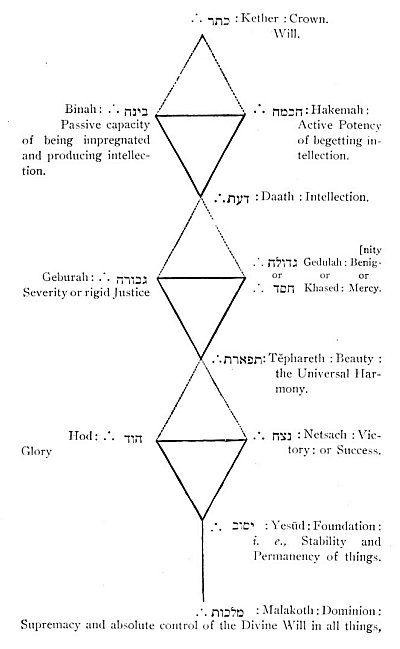We complacently congratulate ourselves on our recognition of a personal God, as being the conception most suited to human sympathies, and exempt from the mystifications of Pantheism. But the Divinity remains still a mystery, notwithstanding all the devices which symbolism, either from the organic or inorganic creation, can supply; and personification is itself a symbol, liable to misapprehension as much as, if not more so than, any other, since it is apt to degenerate into a mere reflection of our own infirmities; and hence any affirmative idea or conception that we can, in our own minds, picture of the Deity, must needs be infinitely inadequate.
The spirit of the Vedas (or sacred Indian Books, of great antiquity), as understood by their earliest as well as most recent expositors, is decidedly a pantheistic monotheism–one God, and He all in all; the many divinities, numerous as the prayers ad-dressed to them, being resolvable into the titles and attributes of a few, and ultimately into THE ONE. The machinery of personification was understood to have been unconsciously assumed as a mere expedient to supply the deficiencies of language; and the Mimansa justly considered itself as only interpreting the true meaning of the Mantras, when it proclaimed that, in the beginning, “Nothing was but Mind, the Creative Thought of Him which existed alone from the beginning, and breathed without afflation.” The idea suggested in the Mantras is dogmatically asserted and developed in the Upanischadas. The Vedanta philosophy,
p. 673
assuming the mystery of the “ONE IN MANY” as the fundamental article of faith, maintained not only the Divine Unity, but the identity of matter and spirit. The unity which it advocates is that of mind. Mind is the Universal Element, the One God, the Great Soul, Mahaatma. He is the material as well as efficient cause, and the world is a texture of which he is both the web and the weaver. He is the Macrocosmos, the universal organism called Pooroosha, of which Fire, Air, and Sun are only the chief members. His head is light, his eyes the sun and moon, his breath the wind, his voice the opened Vedas. All proceeds from Brahm, like the web from the spider and the grass from the earth.
Yet it is only the impossibility of expressing in language the origination of matter from spirit, which gives to Hindu philosophy the appearance of materialism. Formless Himself, the Deity is present in all forms. His glory is displayed in the Universe as the image of the sun in water, which is, yet is not, the luminary itself. All maternal agency and appearance, the subjective world, are to a great extent phantasms, the notional representations of ignorance. They occupy, however, a middle ground between reality and non-reality; they are unreal, because nothing exists but Brahm; yet in some degree real, inasmuch as they constitute an outward manifestation of him. They are a self-induced hypostasis of the Deity, under which He presents to Himself the whole of animate and inanimate Nature, the actuality of the moment, the diversified appearances which successively invest the one Pantheistic Spirit.
The great aim of reason is to generalize; to discover unity in multiplicity, order in apparent confusion; to separate from the accidental and the transitory, the stable and universal. In the contemplation of Nature, and the vague, but almost intuitive perception of a general uniformity of plan among endless varieties of operation and form, arise those solemn and reverential feelings, which, if accompanied by intellectual activity, may eventually ripen into philosophy.
Consciousness of self and of personal identity is co-existent with our existence. We cannot conceive of mental existence without it. It is not the work of reflection nor of logic, nor the result of observation, experiment, and experience. It is a gift from God, like instinct; and that consciousness of a thinking soul which is
p. 674
really the person that we are, and other than our body, is the best and most solid proof of the soul’s existence. We have the same consciousness of a Power on which we are dependent; which we can define and form an idea or picture of, as little as we can of the soul, and yet which we feel, and therefore know, exists. True and correct ideas of that Power, of the Absolute Existence from which all proceeds, we cannot trace; if by true and correct we mean adequate ideas; for of such we are not, with our limited faculties, capable. And ideas of His nature, so far correct as we are capable of entertaining, can only be attained either by direct inspiration or by the investigations of philosophy.

Moe is the founder of GnosticWarrior.com. He is a father, husband, author, martial arts black belt, and an expert in Gnosticism, the occult, and esotericism.





